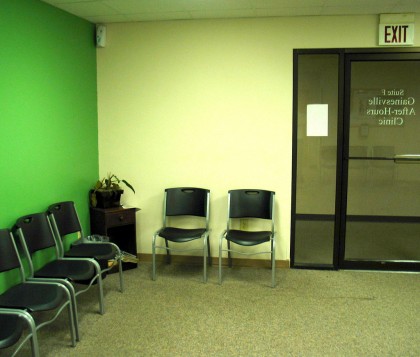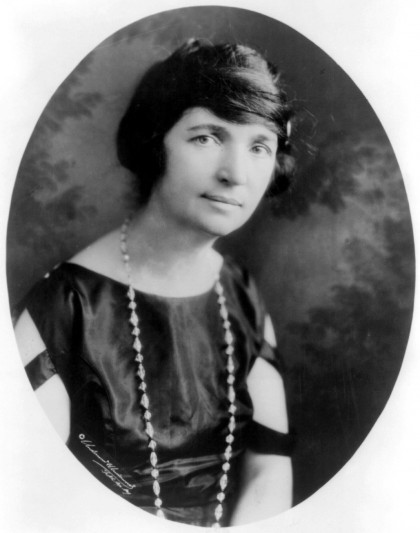How Not to Fix the Healthcare Mess
Devra Torres | Apr 5, 2017 | 3 cmts

For better or for worse, healthcare is in the news again, and I have a story to tell. You can draw what political conclusions you like, but the moral of the story is more about how to treat persons than about which kind of vast, national structure to erect.
Our family had a long, intimate and mostly painful experience with government-controlled healthcare. During our decade in Barcelona, we endured everything from the extraction of a stray Q-tip to the delivery of a nine-pound son under their system..
When we first arrived in Spain, we were only eligible for public medicine (since my in-utero son was deemed a pre-existing condition). Later, we qualified for private healthcare, so we had a basis for comparison. (Spain had both, and all the doctors who worked within the private system put in a certain number of hours in the public one. I don't know if that's still the case.) The difference was dramatic. Particularly eye-opening was my delivery of two different babies, with the very same doctor, one under the public regime, another through private insurance. But let’s begin with the Q-tip.

Early on, my husband got the end of one lodged in his ear canal (not his fault: Spanish Q-tips are pretty flimsy). He walked to our assigned neighborhood clinic, took a number, and sat down among a crowd of people who clearly had bigger troubles than his own, judging from the time it took to attend to them. When his number was finally called, his relief was short-lived: the government had not supplied that particular clinic with the instrument required for Q-tip extraction. The doctor sat down, filled out a referral slip, and explained to my husband which two buses would take him to the larger, more lavishly equipped establishment on the other side of town.
On his eventual arrival, my husband asked directions of the functionary at the information desk, rode the elevator to the appropriate office, took another number, and tried to get comfortable. His patience was rewarded: after more waiting, two more bus rides, and a short walk, he was back home, clear-eared once more. His day was shot--but not a peseta had changed hands! Free medicine! Who was he to complain? In America, there would have been at least a co-pay to cough up.

A few months later, there I was, in active labor with our second child. When we arrived at the hospital, my husband was called away to fill out impressive quantities of forms. I was briskly dumped onto a gurney in a dim basement chamber with the laundry and left alone with my thoughts. For a long time.
Eventually they rolled me upstairs. During the next seven hours, I was held down and injected with something (they wouldn’t say what) against my express wishes, ridiculed for expressing pain (“Thought you said this was your second baby!”), and then wheeled into a quadruple-occupancy recovery room (or octuple, counting our four newborns). I spent the next four days being reprimanded for incompetent swaddling technique, walking the halls without permission, and wanting to nurse my son.

Now, can every facet of this lamentable scenario be laid at the door of socialized medicine? Of course not. After all, lots of medical systems are riddled with bureaucracy, paperwork, disgruntled and ill-tempered nurses, overworked and harried doctors. And weren’t there plenty of cultural issues at play, too?
The funny thing was, though, there I was, a few years later, ready to deliver my daughter. Same culture, same city, same doctor. I arrived at the hospital. They’d allowed me to do all paperwork earlier, so I was welcomed right away into the delivery room. This time my doctor was allowed to work with Carmen, a midwife he’d delivered babies with for 25 years. Because of their expertise and the leeway the private system allowed them, we could forgo most of the invasive technology mandated, one-size-fits-all style, under the public system. Of my eight deliveries (seven hospitals, two countries), my public-option son’s was the most traumatic, my private-medicine daughter’s the least—yet the doctor was the same.
It’s just one woman’s impression. The way it worked in Spain, the privileged got to go private and the less privileged had to go public. The privileged got treated with dignity, the rest like cattle. In America, too, patients on government assistance often end up with substandard care.  Women on Medicaid have to sit in waiting rooms plastered with unsubtle birth control propaganda. The message is clear: just enough of my kind, way too many of yours.
Women on Medicaid have to sit in waiting rooms plastered with unsubtle birth control propaganda. The message is clear: just enough of my kind, way too many of yours.
I used to tell this story, way back when the "public option" was first being discussed in America, as a cautionary tale against socialized medicine. I was (and still am) frustrated at how people who've never lived under it hold up "soft" European socialism as a utopia for patients. But it could just as well be a warning about how people get mistreated and disregarded when the problem is not an overreaching government, but the impersonal forces of Big Pharma and Big HMO muscling their way into everybody's treatment, trumping all concern for treating patients like persons.
The worst of all worlds is the kind of crony socialism you get when an overweening government entwines itself with the most corrupt of business moguls, usurping every possible level of personal decision and vetoing away every last instinct of common sense. That's what we seem to have now. Whatever we replace it with, I hope we get over the tendency to mistake bureaucracy for efficiency and standardization for care.

Comments (3)
Kate Whittaker Cousino
Apr 5, 2017 7:35pm
Stories like yours are one reason many Canadians resist the call for a private/public healthcare system--a "two-tiered" system. The argument in favour is that allowing people to pay for quicker or more concierge treatment from a private clinic would ease demand on the public system and benefit everyone. The counter-argument is that any such double-tiered system would very quickly disincentivize healthcare spending and lead to abuses, since those dependent on the public system would be those least able to self-advocate, those not well-represented in government--the poor and the powerless.
Here in Ontario, there are private clinics for a number of things that the provincial healthcare plan doesn't cover. You can also pay your doctor for services not covered by OHIP. But it is not permitted to offer or procure services for private payment if those services are covered by OHIP. This is supposed to ensure that everyone--the wealthy and poor, powerful and powerless--has a more-or-less equal stake in making the system work functionally and humanely.
Devra Torres
Apr 5, 2017 8:49pm
That seems to make sense. What I've seen here is that the more the federal government has taken control, the more doctors are hampered by regulations that make them spend large amounts of time inputting data instead of even looking at the patient, and the insurance companies and pharmacies have higher- and higher-tech systems in place that make everything more impersonal, and then add, in the name of "personal attention," more and more opportunities to rate everybody and give feedback and take surveys, which feel like a waste of time and more a CYA measure than anything else, since it strains credulity to think a behemoth like United HealthCare is going to change a single jot or tittle of anything they do in response to one measly customer. Expenses have risen dramatically in tandem with the decline of quality of care, too, and the whole thing is so unwieldy it's hard to say whose fault it is. It's hard to believe that if the US streamlines everything into one system it wouldn't be a lowest-common-denominator scenario--like the public option in Spain, but with more paperwork and happy talk.
Kate Whittaker Cousino
Apr 5, 2017 11:19pm
To be successful, I think, single-payer systems have to put medical professionals in the driving seat in designing the system and in treatment decision-making power.
I have no idea whether or not the US could implement single-payer effectively. There are a lot of people with money who have lots to lose if the current insurance/regulatory complex was ever dismantled. And since those people have money and access to whatever health care they want already, they have nothing at all to gain from successful reform.
While we shouldn't ever cease seeking better structures by which to provide what is needful for life to those around us, none of that is a substitute for the need to pray and work for the reform of hearts.